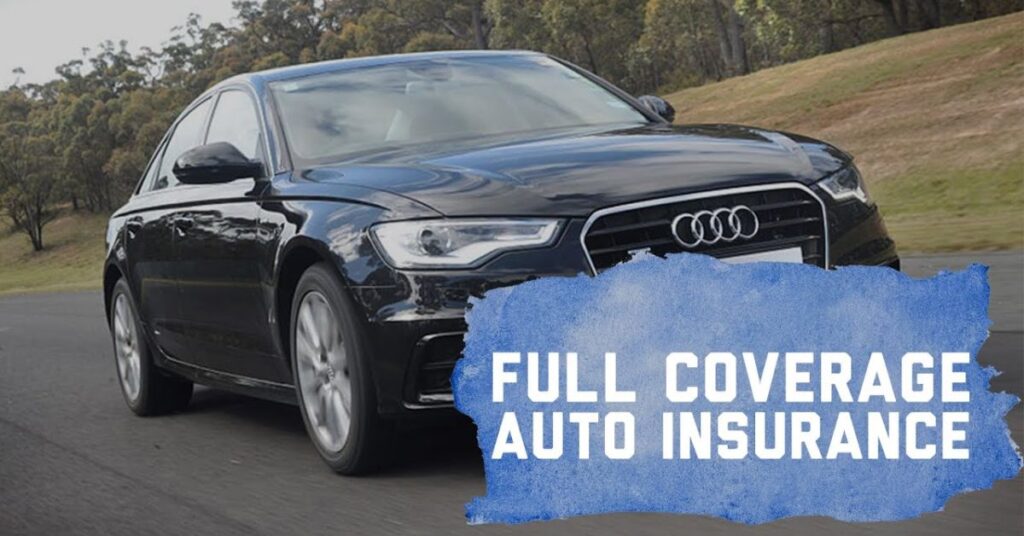Full coverage on a financed car refers to comprehensive and collision insurance, in addition to liability coverage. It typically required by lenders to protect their investment until loan paid off. This ensures coverage for damage to the vehicle, providing financial security for both the lender and the borrower.
Do I need full coverage on a financed car?
Yes, if you’re financing a car, you typically need full coverage car insurance. This includes comprehensive and collision coverage, alongside liability, to protect both you and lender until loan paid off.
What is full coverage auto insurance?
| Coverage Type | What it does |
| Bodily injury liability | Pays for medical bills and expenses if you’ve injured someone in an accident |
| Property damage liability | Covers the cost of property damage you’ve caused in an accident |
| Personal injury protection | Covers medical expenses for you or your passengers after an accident, required in some states |
| Uninsured/underinsured motorist | Covers costs if you’re in an accident caused by a driver with little or no car insurance |
| Comprehensive | Covers damage to your car that happens when you’re not driving (e.g., theft, vandalism) |
| Collision | Pays for damage to your car after a car accident, regardless of fault |

Full coverage auto insurance encompasses comprehensive and collision coverage in addition to liability insurance. Comprehensive coverage protects against non-collision incidents like theft or natural disasters, while collision coverage covers damage from accidents. This comprehensive package provides extensive protection for both the driver and the vehicle.
How much does full coverage car insurance cost?
| Type of Coverage | Average Annual Cost Nationwide |
| Liability | $644.11 |
| Collision | $377.62 |
| Comprehensive | $167.91 |
The cost of full coverage car insurance varies based on factors like age, location, driving history, and vehicle type. On average, it can range around $1,190 annually or roughly $99 monthly in the United States. However, individual rates can differ it’s essential to compare quotes to find the best coverage at the most affordable price.
Can I drop full coverage once I’ve paid off my car loan?
Yes, you can technically drop full coverage (comprehensive and collision coverage) once you’ve paid off your car loan. However, it’s important to consider whether you can afford to replace or repair your vehicle out of pocket. If it damaged or totaled in an accident. While dropping full coverage can save you money on premiums. It leaves you vulnerable to potential financial losses if your car damaged or stolen. Assess your financial situation and the value of your car before deciding to drop full coverage.
How to buy insurance for a financed car?
- Compare multiple quotes from different insurance companies to find the best coverage at the most affordable price.
- Look for discounts such as bundling multiple policies, having a clean driving record, or staying claims-free.
- Choose appropriate coverage limits to ensure you fully protected in case of an accident.
- Adjust deductibles for comprehensive and collision coverage based on your financial situation and risk tolerance.
- Add the lienholder (the lender financing your car) as a named insured on the policy.
- Consider additional coverage options. Such as gap insurance to cover the difference between your car’s value and what you owe on the loan.
- Review the policy terms and conditions carefully before purchasing to understand coverage limits, exclusions, and any additional benefits.
- Regularly review and update your insurance coverage to ensure it meets. Your needs as your financial situation and driving habits change.
Also Read: Is finance a hard major?
Why does a financed car have to be fully insured?
A financed car is typically required to be fully insured for several reasons:
Protection for the Lender: When you finance a car, the lender retains a financial interest in the vehicle until the loan is paid off. Full coverage insurance, including comprehensive and collision coverage, helps protect the lender’s investment. In case the car is damaged or totaled in an accident.

Legal Requirement: Many lenders require borrowers to maintain full coverage insurance as a condition of the loan agreement. This requirement ensures that the lender’s collateral (the financed vehicle) is adequately protected according to legal and contractual obligations.
Financial Protection for the Borrower: Full coverage insurance provides financial protection for the borrower as well. In the event of an accident, comprehensive and collision coverage can help cover repair costs or the replacement value of the vehicle, reducing the financial burden on the borrower.
Risk Management: Car accidents can happen unexpectedly, and the financial consequences of not having adequate insurance coverage can be significant. They require full coverage insurance, lenders mitigate their risk exposure, and ensure that borrowers are financially prepared for potential accidents or damages to the financed vehicle.
do you need full coverage on a financed car in Florida?
Yes, in Florida, you typically need full coverage insurance on a financed car. While Florida law does not specifically require full coverage insurance, lenders often require borrowers to maintain comprehensive and collision coverage as part of the loan agreement. This requirement helps protect the lender’s financial interest vehicle until the loan paid off.
Also, having full coverage insurance provides financial protection for both the borrower and the lender in the event of accidents, theft, or other damages to the financed vehicle. Therefore, it’s advisable to check with your lender to confirm their specific insurance requirements for a financed car in Florida.
financed car insurance requirements in Texas
In Texas, as in many other states, there are specific insurance requirements for financed cars. While Texas law doesn’t explicitly mandate full coverage insurance for financed vehicles, lenders typically require borrowers to carry comprehensive and collision coverage as part of the loan agreement.
financed car insurance requirements
- Liability Insurance: State laws often mandate liability coverage, which covers bodily injury and property damage you may cause to others in an accident.
- Comprehensive Coverage: Lenders typically require comprehensive insurance, protecting your car against non-collision events like theft, vandalism, or natural disasters.
- Collision Coverage: Similarly, collision coverage commonly required by lenders to cover damage our car collision, regardless fault.
- Additional Coverage: Depending on the lender’s policies and state regulations, you may also need uninsured/underinsured motorist coverage or personal injury protection.
- Lender’s Requirements: Check with your lender to understand their specific insurance requirements for financed cars, as they may have additional conditions beyond state regulations.
- Continuous Coverage: Maintain continuous insurance coverage throughout the loan term to comply with lender requirements and avoid penalties, including potential repossession of the vehicle.
- Policy Limits: Ensure that your insurance policy meets or exceeds the minimum coverage limits specified by your lender and state laws.
- Review and Update: Regularly review your insurance policy to ensure it meets your needs and complies with any changes in lender requirements or state regulations.
Also Read: What companies are in the finance field?
Final Thought
Ensuring that your financed car has the appropriate insurance coverage is essential for protecting both yourself and your lender. They understanding the minimum full coverage requirements, consulting with your lender, and staying informed about state regulations. You can make informed decisions to safeguard your investment.
Remember to review your insurance policy regularly to ensure it meets your needs and complies with any changes in requirements. Then the right coverage in place, you can drive with confidence, knowing. That you adequately protected in the event an accident unforeseen circumstances.
Frequently Asked Questions
Do I need full coverage insurance for a financed car?
While full coverage insurance isn’t always legally required, lenders often mandate to protect their investment until the loan paid off. It typically includes comprehensive and collision coverage in addition to liability insurance.
What does full coverage insurance entail?
Full coverage insurance typically includes liability coverage, which covers damages to others in an accident. As well as comprehensive and collision coverage. Which protects your vehicle against various risks, including theft, vandalism, and collisions.
Can I drop full coverage once I’ve paid off my car loan?
Once you’ve paid off your car loan, you may choose to drop comprehensive and collision coverage to save money. However, it’s important to consider whether you can afford to repair or replace your vehicle out of pocket if it damaged or totaled in an accident.
What happens if I don’t have the required insurance for my financed car?
Failure to maintain the required insurance coverage for a financed car can result in penalties, including potential repossession of the vehicle by the lender. It’s crucial to comply with the insurance requirements outlined in your loan agreement to avoid any adverse consequences.
How can I find affordable insurance for my financed car?
To find affordable insurance for your financed car, consider shopping around and comparing quotes from multiple insurance providers. Look for discounts, such as bundling policies or maintaining a clean driving record, to potentially lower your premiums.

Haarrii, a seasoned finance expert with 4 years of hands-on experience, brings insightful analysis and expert commentary to our platform. With a keen eye for market trends and a passion for empowering readers, Haarrii delivers actionable insights for financial success.







